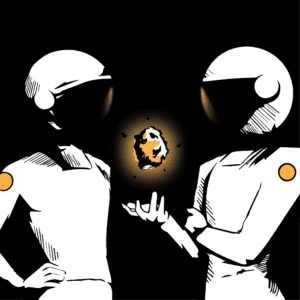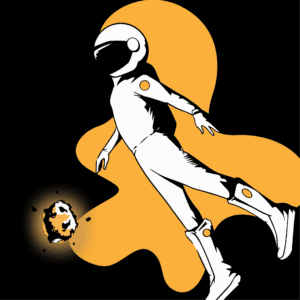Hi Jo,
I recently started a career in marketing automation and I’m feeling a bit overwhelmed.
It feels like I’m expected to know so many different things and I’m not sure I can keep up.
I want to keep building my skill set and learning as much as I can, but I don’t know where to start. Should I prioritize soft skills or learn about as many automation tools as possible?
Can you help me?
Thanks,
Learning Laura


Hey Laura,
You’ve hit on a challenge that I think a lot of people face in marketing operations (MOPs).
The marketing technology space is always evolving. In fact, it feels like there’s a new platform or solution every week. For marketing ops professionals that are seen by the rest of their organization as the guardians of that technology (even if they’ve never worked with most of it before), there’s a lot of pressure to have an opinion about each and every tool. But that’s not really possible, is it?
At the same time, MOPs covers a large scope of functions including:
- content creation
- campaign production
- reporting
- marketing automation, and
- CRM management.
Many companies are only just figuring out that they need multiple people to fill those different roles.
This means that marketing ops professionals tend to be expected to have a large breadth of knowledge and, as you said, that’s overwhelming.
So, how do you prioritize your learning and skill-building time so that it’s most effective for you and your organization? I’ve come up with a handful of suggestions below.
1. Build on what you already know
Let’s make one thing crystal clear: you do not have to be a specialist in every single automation tool.
That said, there’s also no rule saying you can’t be proficient in more than one of them. If you want to expand your technical knowledge, I’d suggest sticking close to what you’re already familiar with.
For example, if you’re managing Marketo for your company and you’ve been asked to bring on a cool new tool that integrates with the system, that could be a good candidate for you. If you’re interested, see if there’s a way to dive deep into that new solution and get certified in it. Trust me, your leaders will be thrilled that someone wants to build knowledge in a technology the company is using.
Another thing to remember is that automation principles are the same across all tools. So, if that is the part of the tool that you love, then you can likely be an automation expert across multiple tools.
2. Lean on your community
One of the truly unique things about the marketing automation space is that there is a massive community of professionals willing to share their knowledge.
As the space keeps changing and growing, we all know that we don’t know everything. That makes us eager to help others when they come up against a challenge we may have faced before. I for one love getting messages from people in my network and helping them navigate issues on Marketo or in any other aspect of marketing operations.
Don’t be afraid to ask questions. Check in with other people using the same tools. And if you feel you don’t have the network yet, start building it with the help of communities like MO Pros.
3. Practice your soft skills
Your technical skills will be key for succeeding in marketing ops, but there are also some really important soft skills that you should be honing from the get-go.
Among the most important is the ability to translate what you’re being asked to do into technical steps, and communicate those steps back in a way that’s easy to understand.
Ultimately, you need to build common ground with your leaders and stakeholders so that there’s as little room for miscommunication as possible. My advice? A good diagram goes a long way.
Another important skill to practice is puzzle-solving.
So much of marketing automation is built on logic, and you’ll be responsible for finding the easiest, most effective, and most scalable solution to any problem that arises.
Part of that is about being curious and being open to exploring new ways of doing things—and the other part is tapping into your logical brain and uncovering the right patterns.
So, if you don’t have a puzzle book on your bedside table, maybe you should put that on the wishlist for your next birthday.
You’ve got this,
Jo Pulse


